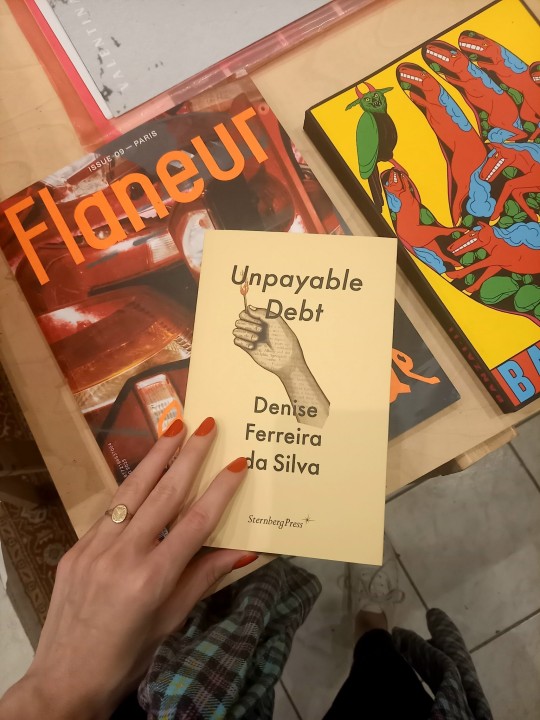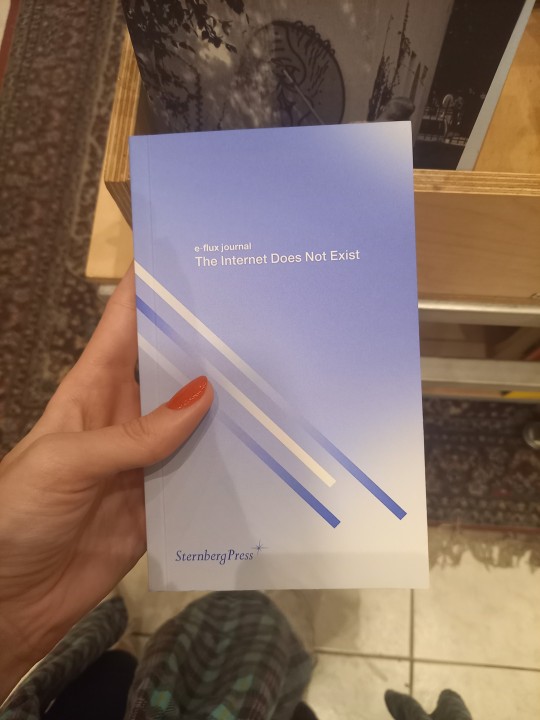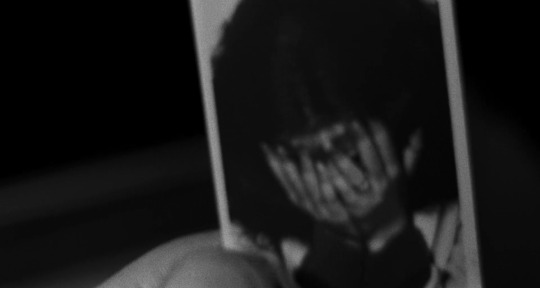Text
"Immature people crave and demand moral certainty: This is bad, this is good. Kids and adolescents struggle to find a sure moral foothold in this bewildering world; they long to feel they’re on the winning side, or at least a member of the team. To them, heroic fantasy may offer a vision of moral clarity. Unfortunately, the pretended Battle Between (unquestioned) Good and (unexamined) Evil obscures instead of clarifying, serving as a mere excuse for violence — as brainless, useless, and base as aggressive war in the real world."
Ursula K Le Guin at it again, being right as always
65K notes
·
View notes
Text
"You start by merely trying to describe the minor differences modulated through variations in types of light.
You leave lists like this lying around:
glinty
glowing
glazed
glittering
gleaming
blurred
hazy
fogged
flared
smoky
gauzy
patchy
flickering
shimmering
shadowy
refracting
reflecting
&c."
-Eugenie Brinkema, How I Have Not Written Certain of My Readings
47 notes
·
View notes
Text

gramsci cited in spivak's aesthetic education
3 notes
·
View notes
Text
"But if there is one thing that a profound commitment to close reading for form requires, it is getting comfortable with a certain fucked relation to time.
Jean-Claude Lebensztejn described this demand as “the extravagant patience” of Derrida’s subtle, winding, indirect analysis. And lest you prefer that genteel Gallic phrasing, recall that the Latin patientia means suffering, threads back to *peh-: to hurt. But if you want a mode of interpretation that is speculative, dynamic, vital, and creative, perhaps it ought to cost something.
Radical formalism, as articulated in The Forms of the Affects (2014) and Life-Destroying Diagrams (2022)—not a formalism in thrall to radical politics or any prior affordances, but a formalism that grounds (radix: roots) theoretical claims—involves what I call reading without guarantee. Not only does this require eschewing paraphrase or the application of an assemblage of themes, it also means that one begins reading from some (any) particular details of a particular textual object and then proceeds to see what happens. One does not know in advance what the writing of a reading will reveal. You have to put in the work and the work is writing and thus the work itself has form and the work will both construct and read itself—and your work, also, will never be done or final or closed."
-Eugenie Brinkema, How I Have Not Written Certain of My Readings
1 note
·
View note
Text

HOU Hsiao-hsien in Edward YANG's "Taipei Story" (1985)
519 notes
·
View notes
Text
“We think of colonial institutions as, for instance, banks – the East India Company or various economic and governmental structures that are left in place. But what if it turns out that the very figure of the subject is itself a colonial institution? What if it turns out that representation or inclusion are also colonial institutions that converge with the figure of the settler?”
-Fred Moten, in interview
32 notes
·
View notes
Text
"My sense of it is that, no, it is really not a matter of indebtedness. It is more problematic than that. It is not even a matter of inheritance. It is a matter of kinship. The history of thought produces strange kinship relations that often we don’t want to acknowledge because we don’t want to be seen as being related to Heidegger because he was so much of a… bastard. I don’t want to be related to Thomas Jefferson, but every instance in which I begin to engage in the discourse of freedom and equality is a moment in which I show that kinship. Now, we then have to say something about that, and maybe we also have to do something about that, but we certainly cannot deny it.
We might not want that to be true, but it is. We might not want there to be a kinship between Frantz Fanon and Daniel Patrick Moynihan [a former US politician, 1927–2003], it is unseemly, that it is. We can love Fanon and hate Moynihan, but there is a kinship there, and it behooves us to pay attention to that. It goes beyond the intentions of an individual thinker. That is why it is not really a matter of indebtedness to a thinker. It is a matter of kinship within the practice of thinking.
There is no cleansing that can be done. Instead, these are paradoxes and contradictions that we have to recognize that we inhabit and then figure out a practical, ethical approach to that inhabitation. That will allow us to actually practice our difference from Heidegger rather than assert it as if it were an identity. We have to work that and play that as a practice.
Only under very specific circumstances would I use the term decolonial, and it really is only to refer to a set of practices which I think now can properly be called that way. I also use it to refer to a sort of attitude that is present, at least in my understanding, in scholarly circles. Primarily, I think it shows up as a moral claim that can easily devolve into a kind of moralism. It accompanies a kind of scrutiny that is imposed on people, so you can see whether or not they are properly decolonial, you know? It is puritanical in that way. Even the prefix “de-” implies the possibility of an absolute cleansing. I am not saying that every decolonial thinker believes that there can be some absolute eradication of coloniality, but it produces that general moralistic atmosphere. So, I prefer the term anti-colonial, which to me implies a more or less interminable commitment to fight colonialism. But I am older. The thinkers that I was brought up with, raised to admire, and want to affiliate with, they were anti-colonial thinkers. They were involved in anti-colonial practices. What we know now about the history of so-called postcoloniality is that it did not on any level create a situation in which anti-coloniality was no longer needed. Anti-coloniality is needed now, more than ever before.”
-Fred Moten, in interview
15 notes
·
View notes
Text
"But we’ve got to have something that exceeds the desire to be represented. At the same time, of course, how could the desire to be represented be anything other than utterly justifiable and legitimate? See, that’s the thing. It is totally justifiable.
We have to learn how to desire something more than that. And it is terrible, right? How do you learn how to desire something more than being a human, something more than being a person, something other than being a fully-fledged individual subject, something other than being represented? How does an artist come to desire something other than being at this museum? [Points to the surroundings.] Or how does a black scholar desire something other, or more, than being a professor at Harvard, or Yale, or NYU? Like I said, I don’t absolve myself from these questions. They are the questions of my life. I have no pure position from which to articulate these questions. That is the whole point. I am implicated in every one of these questions.”
-Fred Moten, in interview
2 notes
·
View notes
Text


Hanjo Berressem, Felix Guattari's Schizoanalytic Ecology
9 notes
·
View notes

















